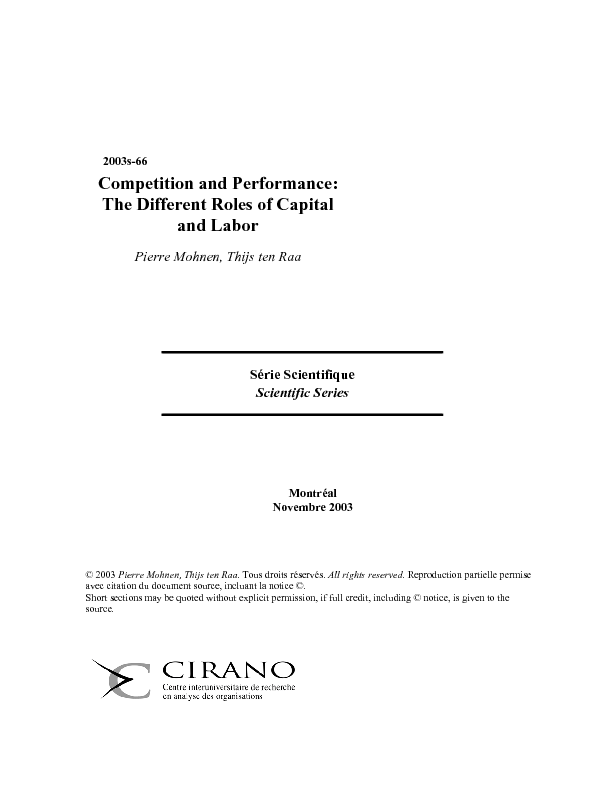Competition and Performance: The Different Roles of Capital and Labor
Neoclassical economists argue that competition promotes efficiency. They consider technology as given though. In the long run technological progress is an important determinant of the level of welfare and Schumpeter argued that monopoly rents help entrepreneurs to capture the gains of R&D and hence to invest in it. We investigate the overall effect of competition on performance. Performance is measured by TFP-growth. As a negative measure of competition we use rent. Rent is defined as the excess factor rewards over and above their perfectly competitive values (marginal productivities). Input-output analysis enables us to calculate rent for the Canadian sectors over a thirty-year period and to decompose it in its capital and labor components. In line with the literature we find that rent has no significant influence on productivity. We find an interesting result however: the components influence performance in opposite directions. Capital rent has a positive role and labor rent a negative one. The neoclassical economists and Schumpeter seem both right, but the mechanisms differ. The use of rent as a source of funding for R&D applies to capital and the argument that rent yields slack pertains to labor.
[ - ]




